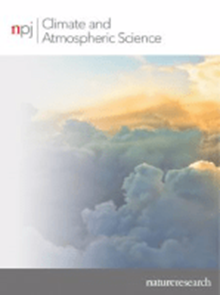2024 ESA-ECMWF 讲习班报告:地球系统观测和预测机器学习的现状、进展和机遇
IF 8.5
1区 地球科学
Q1 METEOROLOGY & ATMOSPHERIC SCIENCES
引用次数: 0
摘要
本报告总结了由欧洲航天局(ESA)和欧洲中期天气预报中心(ECMWF)联合举办的第四期地球系统观测和预测机器学习(ML)讲习班(ESOP / ML4ESOP)的主要成果。为期4天的讲习班于2024年5月7日至10日在欧空局弗拉斯卡蒂场址举行,讲习班采用混合形式,并设有在线互动环节,共有超过46场专家讲座,提交的论文数量创历史新高,约有800人报名参加。研讨会为顶尖专家提供了一个平台,就将 ML 方法应用于 ESOP 的当前机遇、挑战和未来方向进行交流。为了组织演讲和讨论,研讨会设置了五大主题领域,涵盖了关键议题和新兴趋势。每个专题领域的工作组都确定了最有前途的研究方向和重要成果,这也是本文件的重点。本文章由计算机程序翻译,如有差异,请以英文原文为准。
2024 ESA-ECMWF workshop report: current status, progress and opportunities in machine learning for Earth system observation and prediction
This report summarises the main outcomes of the 4th edition of the workshop on Machine Learning (ML) for Earth System Observation and Prediction (ESOP / ML4ESOP) co-organised by the European Space Agency (ESA) and the European Centre for Medium-Range Weather Forecasts (ECMWF). The 4-day workshop was held on 7-10 May 2024 in a hybrid format at the ESA Frascati site with an interactive online component, featuring over 46 expert talks with a record number of submissions and about 800 registrations. The workshop offered leading experts a platform to exchange on the current opportunities, challenges and future directions for applying ML methodology to ESOP. To structure the presentations and discussions, the workshop featured five main thematic areas covering key topics and emerging trends. The most promising research directions and significant outcomes were identified by each thematic area’s Working Group and are the focus of this document.
求助全文
通过发布文献求助,成功后即可免费获取论文全文。
去求助
来源期刊

npj Climate and Atmospheric Science
Earth and Planetary Sciences-Atmospheric Science
CiteScore
8.80
自引率
3.30%
发文量
87
审稿时长
21 weeks
期刊介绍:
npj Climate and Atmospheric Science is an open-access journal encompassing the relevant physical, chemical, and biological aspects of atmospheric and climate science. The journal places particular emphasis on regional studies that unveil new insights into specific localities, including examinations of local atmospheric composition, such as aerosols.
The range of topics covered by the journal includes climate dynamics, climate variability, weather and climate prediction, climate change, ocean dynamics, weather extremes, air pollution, atmospheric chemistry (including aerosols), the hydrological cycle, and atmosphere–ocean and atmosphere–land interactions. The journal welcomes studies employing a diverse array of methods, including numerical and statistical modeling, the development and application of in situ observational techniques, remote sensing, and the development or evaluation of new reanalyses.
 求助内容:
求助内容: 应助结果提醒方式:
应助结果提醒方式:


